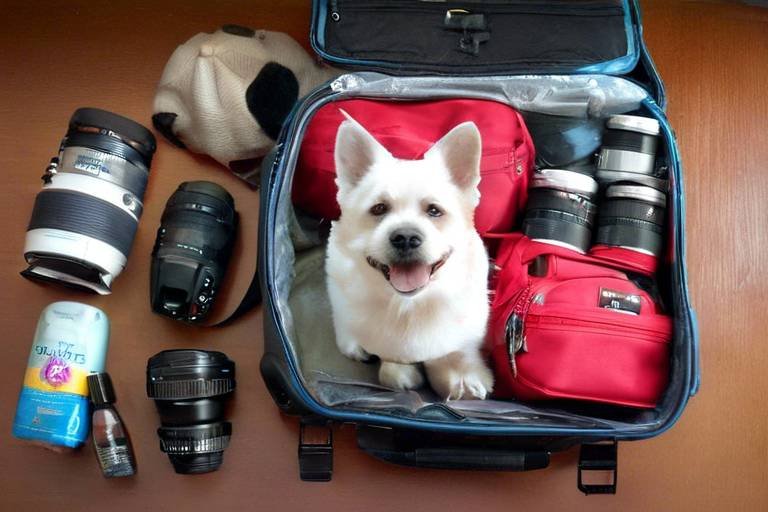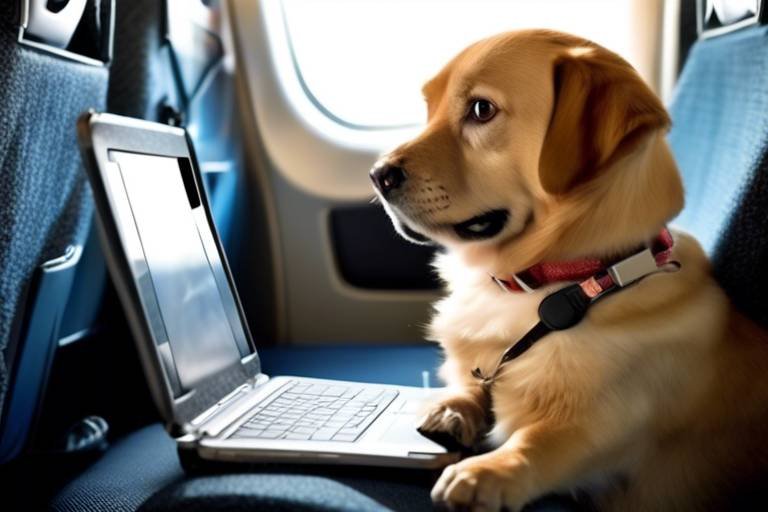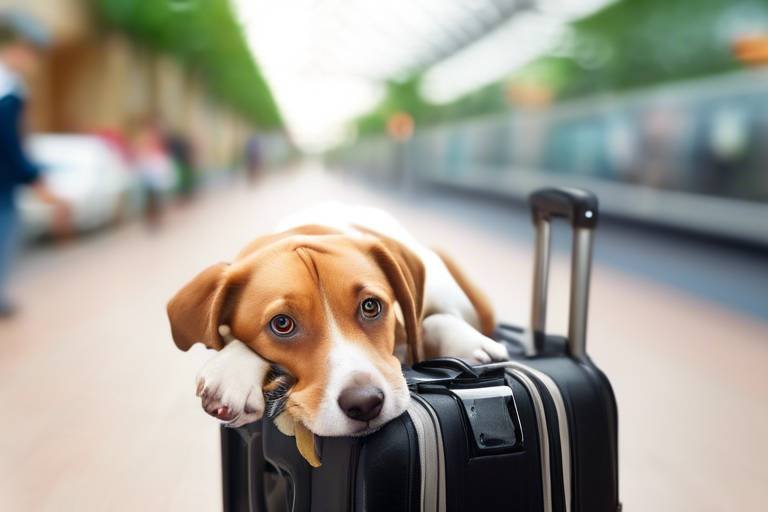How to Handle Unexpected Situations While Traveling
Traveling is one of life's greatest joys, but it often comes with its fair share of surprises. From missed flights to unexpected weather changes, the road less traveled can sometimes feel like a rollercoaster ride. So, how do you handle these unforeseen circumstances? The key lies in preparation, adaptability, and a sprinkle of positivity. In this article, we'll explore various strategies to help you navigate the bumps in the road during your travels, ensuring that you can turn potential disasters into memorable adventures.
Before you embark on your journey, it's essential to recognize the common travel disruptions that can throw a wrench in your plans. Flight cancellations, lost luggage, and unexpected delays are just a few examples. Understanding these issues is the first step toward effective management. Imagine you're at the airport, and your flight has been delayed due to weather conditions. Instead of panicking, knowing that this is a common occurrence allows you to take a deep breath and formulate a plan.
Preparation is your best friend when it comes to mitigating potential travel issues. Here are some essential steps to consider:
- Pack Smartly: Always pack an extra set of clothes in your carry-on and essential toiletries to tide you over in case your luggage gets lost.
- Organize Important Documents: Keep copies of your passport, travel insurance, and itinerary in a secure yet accessible place.
- Check Travel Advisories: Stay informed about the destination you’re visiting, including any potential disruptions.
By taking these steps, you can significantly reduce the impact of unexpected situations on your travel experience.
When faced with unexpected situations, maintaining composure is crucial. Stress can cloud your judgment and make it difficult to think clearly. Techniques such as deep breathing and positive thinking can be incredibly effective. Picture this: you're stuck at an airport with no information about your flight. Instead of succumbing to frustration, take a moment to breathe deeply, count to ten, and remind yourself that this, too, shall pass. By cultivating a calm mindset, you'll be better equipped to tackle any challenge that comes your way.
Clear communication is vital when dealing with travel disruptions. Whether you're speaking with airline representatives, hotel staff, or local authorities, being articulate and polite can make a world of difference. Here are a few tips:
- Be Clear and Concise: Explain your situation without unnecessary details.
- Stay Polite: A friendly demeanor can often yield better results.
- Ask Open-Ended Questions: This encourages more detailed responses and solutions.
Effective communication not only helps resolve issues quickly but can also lead to unexpected perks, such as upgrades or complimentary services.
In today’s digital age, technology can be a lifesaver when things go awry. There are numerous apps and resources designed to assist travelers in real-time. For example, flight tracking apps can provide updates on delays, while accommodation apps can help you find last-minute lodging. Don't forget to download the airline's app, which often allows you to rebook flights with just a few taps. Embracing technology can transform a stressful situation into a manageable one.
Sometimes, the best support comes from those who are experiencing the same situation as you. Building connections with fellow travelers can provide valuable insights and assistance. Whether it's sharing a taxi or exchanging tips on local resources, camaraderie can make a challenging experience more enjoyable. Picture yourself stranded in a foreign city, and a fellow traveler offers you their hotspot for internet access. This kind of support can turn a tough moment into an opportunity for friendship.
Investing in travel insurance is like having a safety net underneath you as you walk the tightrope of travel. It provides peace of mind, knowing that you're covered in case of unexpected events, such as medical emergencies or trip cancellations. When choosing a policy, consider factors like coverage limits, exclusions, and customer reviews. A little investment in insurance can save you from significant financial headaches down the line.
Every travel disruption is an opportunity to learn and grow. Reflecting on your experiences can help you adapt your future travel plans. Maybe you learned the importance of arriving at the airport earlier or discovered a new app that simplifies the rebooking process. Embracing these lessons can enhance your travel skills and prepare you for whatever comes next.
Having a list of emergency contacts and resources can be a lifesaver during travel disruptions. Consider compiling a list that includes:
- Your country’s embassy or consulate contact information
- Local emergency numbers
- Contact information for your travel insurance provider
Storing this information on your phone or in a travel document can provide quick access when you need it most.
Q: What should I do if my flight is canceled?
A: Contact the airline immediately to rebook your flight. Be polite and clear about your situation, and ask for alternative solutions.
Q: How can I keep my belongings safe while traveling?
A: Always keep your valuables in your carry-on, and consider using a money belt or anti-theft backpack.
Q: Is travel insurance worth it?
A: Yes, travel insurance can save you from substantial financial losses due to unexpected events, making it a wise investment.

Understanding Common Travel Disruptions
Traveling is often an exhilarating experience filled with new sights, sounds, and cultures. However, it can also come with its fair share of unexpected disruptions that can throw a wrench in your plans. Understanding these common travel disruptions is essential for any traveler looking to navigate their journey smoothly. Imagine you're all packed and ready to embark on your dream vacation, only to find out that your flight has been canceled. This scenario is more common than you might think, and being aware of such possibilities can help you prepare mentally and logistically.
One of the most frequent disruptions travelers face is flight cancellations. These can occur due to various reasons, including severe weather conditions, mechanical issues, or even airline strikes. When your flight is suddenly canceled, it can feel like a punch to the gut, especially if you have connecting flights or accommodations waiting for you at your destination. It's crucial to stay informed about your flight status and understand your rights as a passenger. For instance, did you know that airlines are often required to provide compensation in certain situations? Knowing this can give you leverage when dealing with airline representatives.
Another common issue is lost or delayed luggage. Picture this: you arrive at your destination, excited to explore, only to find that your suitcase has taken a detour somewhere else. This can be incredibly frustrating, especially if you have important items packed away. To mitigate this risk, consider packing a carry-on with essentials like a change of clothes, toiletries, and any necessary medications. In addition, familiarize yourself with the airline's policies regarding lost luggage. Most airlines have a process in place for reporting and recovering lost items, but knowing the steps beforehand can save you valuable time and stress.
Other disruptions can include transportation delays, such as missed connections or late arrivals of trains and buses. These can often lead to a domino effect, causing you to miss out on planned activities or accommodations. Being aware of local transportation options and having a backup plan can significantly ease the stress associated with such delays. For example, if you're traveling to a remote area, it might be wise to have a rental car booked in advance or know the schedule of local public transport.
Finally, consider the impact of health-related issues while traveling. Whether it's a sudden illness or an injury, these situations can arise without warning and require immediate attention. Make sure to have a list of local hospitals or clinics at your destination, and consider investing in travel insurance that covers medical emergencies. This way, you can focus on recovering rather than worrying about the costs involved.
In summary, being aware of these common travel disruptions can significantly enhance your travel experience. By preparing for the unexpected, you can save yourself from unnecessary stress and enjoy your journey to the fullest. Keeping a level head and having a plan in place can turn potential disasters into mere bumps in the road. After all, isn’t that what travel is all about—embracing the adventure, no matter where it leads?
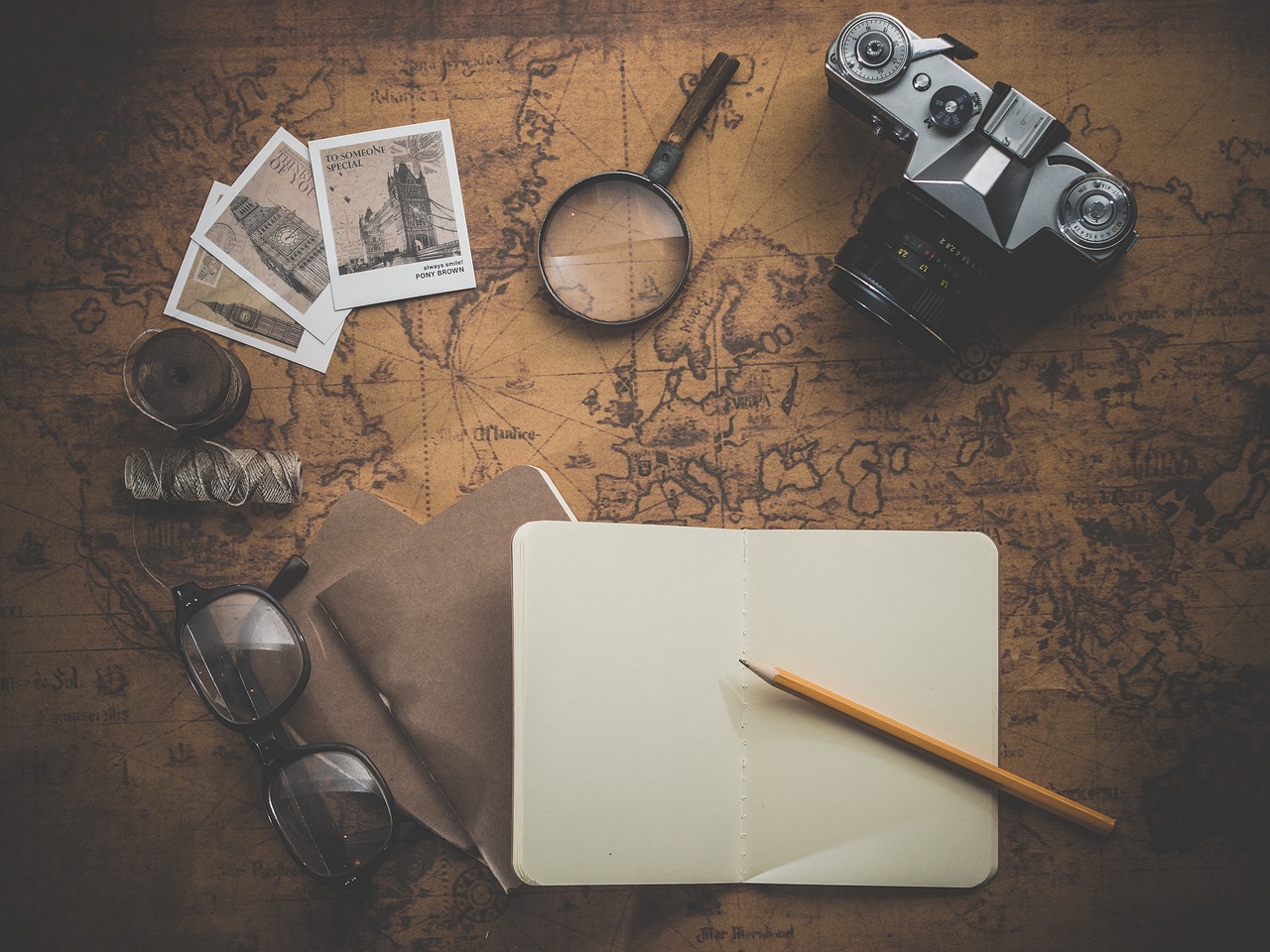
Preparation Before You Travel
Proper preparation is the backbone of a successful trip. Imagine setting off on an adventure only to find yourself unprepared for the unexpected twists and turns that travel can throw your way. To avoid such predicaments, it's essential to take a few strategic steps before you even step out the door. First and foremost, packing smartly can make a world of difference. Think of your suitcase as your travel lifeline; it should be organized and efficient. Instead of haphazardly throwing clothes into your bag, consider creating a packing list tailored to your destination’s climate and activities. This way, you won’t find yourself in a situation where you’re missing a critical item, like a warm jacket in a chilly destination.
Next, ensure that you have all your important documents organized and easily accessible. This includes your passport, travel insurance, flight tickets, and accommodation confirmations. You might even want to create a travel document folder or an electronic version stored on your phone. By having everything in one place, you can quickly retrieve what you need, which is invaluable during unexpected situations such as flight changes or hotel issues.
Additionally, familiarize yourself with the local customs and regulations of your destination. This knowledge can prevent misunderstandings and help you blend in more seamlessly with the local culture. For instance, knowing basic phrases in the local language can go a long way in easing communication barriers and enhancing your overall travel experience.
Another essential aspect of preparation is to keep a close eye on your travel itinerary. While it's great to have a plan, flexibility is equally important. Unexpected events can lead to changes in your schedule, so being adaptable will allow you to make the most of your travels. Consider using travel apps that can help you monitor your itinerary and provide real-time updates. This way, you can stay informed about any changes and adjust your plans accordingly.
Lastly, don't forget to inform someone about your travel plans. Whether it's a family member or a close friend, having someone who knows your itinerary can provide an extra layer of safety. In the unlikely event that something goes awry, they’ll be able to assist you or alert authorities if necessary.
In summary, preparation is not just about packing your bags; it's about setting the stage for a smooth and enjoyable journey. By taking the time to organize your belongings, gather important documents, and remain adaptable, you can significantly reduce the stress associated with unexpected travel disruptions. Remember, the goal is to embrace the adventure while being ready for anything that comes your way!
- What should I include in my travel document folder?
Your travel document folder should include your passport, visas, travel insurance, flight tickets, accommodation confirmations, and emergency contact information.
- How can I stay updated on my travel itinerary?
Using travel apps like TripIt or Google Trips can help you keep track of your itinerary and send you real-time updates on any changes.
- Why is it important to inform someone about my travel plans?
Informing someone about your travel plans provides an extra layer of safety. If something goes wrong, they can assist you or contact authorities on your behalf.

Staying Calm Under Pressure
Traveling is often an exhilarating experience filled with new sights, sounds, and cultures. However, it can also be a breeding ground for unexpected challenges that can throw even the most seasoned traveler into a tailspin. Imagine you’re at the airport, suitcase in hand, ready to embark on your dream vacation, when suddenly, you hear the dreaded announcement: your flight has been delayed or canceled. In moments like these, it’s crucial to stay calm under pressure. Keeping your cool not only helps you think clearly but also allows you to tackle problems head-on rather than succumbing to panic.
One effective technique for maintaining composure is practicing deep breathing. When anxiety strikes, take a moment to breathe in deeply through your nose, hold for a few seconds, and exhale slowly through your mouth. This simple act can lower your heart rate and clear your mind, making it easier to assess the situation logically. It’s like hitting the reset button on your brain. You might also find that incorporating a few moments of mindfulness or meditation into your travel routine can greatly enhance your ability to cope with stress. Just a few minutes of focused breathing can transform your mindset from chaos to calm.
Another powerful strategy is positive thinking. Instead of fixating on what’s gone wrong, try to shift your perspective to what you can control. For instance, if your flight is delayed, think about the opportunities that might arise from this unexpected change. Perhaps you’ll meet someone interesting at the airport, or you’ll have time to grab that coffee you’ve been craving. By reframing your thoughts, you can turn a frustrating situation into a chance for growth or adventure.
In addition to these techniques, having a plan can also significantly reduce stress. Before you travel, take the time to research your destination and familiarize yourself with local customs, transportation options, and emergency contacts. This preparation not only equips you with knowledge but also instills a sense of confidence. When you know what to expect, you’re less likely to feel overwhelmed. For example, if you know the local language basics or have the contact information for your hotel, you’ll feel more empowered to navigate any hiccups that may arise.
Moreover, don't underestimate the power of support systems. Whether it’s a travel companion or fellow travelers you meet along the way, having someone to share your experiences with can lighten the emotional load. When faced with a stressful situation, reach out to those around you. Sharing your concerns can not only provide you with advice but also remind you that you’re not alone in this journey. After all, everyone has faced their own share of travel mishaps!
Lastly, remember that every travel disruption is an opportunity to learn. Reflecting on how you handled a situation can prepare you for future challenges. Did you manage to stay calm? What strategies worked best for you? By analyzing your responses, you can develop a toolkit of coping mechanisms for future travels. So, the next time you find yourself in a tight spot, you’ll be ready to face it with a smile and a sense of adventure.
- What should I do first if my flight is canceled?
First, take a deep breath. Then, check with the airline for rebooking options and stay updated on any announcements.
- How can I prepare for unexpected travel disruptions?
Research your destination, have emergency contacts handy, and consider travel insurance for added security.
- What techniques can help me stay calm during travel stress?
Deep breathing, positive thinking, and having a solid plan can all help you remain composed under pressure.

Effective Communication Strategies
When you're traveling, especially in the face of unexpected disruptions, effective communication becomes your best ally. Imagine you’re at an airport, your flight has been canceled, and the line at the customer service desk is longer than a Monday morning. In such situations, knowing how to communicate clearly and effectively can make all the difference. First and foremost, it's essential to stay calm and approach the situation with a positive attitude. When you communicate with a smile, even if it's just through your voice, it can set a more amicable tone. Remember, the person on the other side is more likely to help you if you treat them with respect and kindness.
One of the first steps in effective communication is to prepare your message. Know exactly what you need—whether it’s a rebooking, a refund, or information about your luggage. Being specific can save precious time and reduce frustration. Instead of saying, "I need help," try, "I need to rebook my flight to New York due to a cancellation." This not only clarifies your needs but also shows that you’re organized and serious about resolving the issue.
Additionally, don’t hesitate to use technology to enhance your communication. Most airlines and hotels have apps that allow you to chat with customer service representatives in real time. This can often be faster than waiting in line or on hold. If you prefer speaking to someone directly, prepare a list of questions to ask. This can include inquiries about alternative flights, compensation policies, or even local accommodations. Keeping your questions concise can help you get the information you need without unnecessary back-and-forth.
Another effective strategy is to document everything. Keep a record of your communications, whether it’s emails, chat logs, or notes from phone calls. This can be incredibly useful if you need to escalate an issue later on. If you encounter a problem that requires a follow-up, having a clear trail of your communications will strengthen your case. Always ask for confirmation numbers or names of the representatives you speak with, as this information can be invaluable if you need to refer back to it later.
Lastly, don’t underestimate the power of networking with fellow travelers. Sometimes, sharing your experience with others can lead to unexpected solutions. You might find someone who has faced a similar situation and can offer advice or even direct contacts to help expedite your issue. Whether it’s in the airport lounge, a train station, or a hotel lobby, building connections with fellow travelers can provide not only support but also valuable insights into navigating unexpected challenges.
In summary, effective communication is about clarity, preparation, and maintaining a positive demeanor. By being organized, utilizing technology, documenting your communications, and networking with others, you can significantly enhance your ability to handle unexpected travel disruptions. Remember, every challenge is an opportunity to learn and grow, and effective communication is the key to turning those challenges into manageable experiences.
- What should I do if my flight is canceled? - Stay calm, check your airline's app for updates, and be ready with your travel details when you approach customer service.
- How can I communicate effectively with hotel staff? - Be clear about your needs and document any conversations for future reference.
- Is it beneficial to use social media for travel issues? - Yes, many companies respond quickly to inquiries made through social media platforms.
- What information should I keep handy while traveling? - Keep your travel itinerary, contact information for your airline and accommodations, and any necessary identification close at hand.

Utilizing Technology to Your Advantage
In today's fast-paced world, technology has become an indispensable ally for travelers, especially when faced with unexpected situations. Imagine you're at the airport, and your flight is suddenly canceled. Panic sets in, but then you remember your smartphone is more than just a communication device; it's a powerful tool that can help you navigate this chaos. From travel apps to social media, technology offers a plethora of resources that can turn a potential disaster into a manageable inconvenience.
One of the most effective ways to utilize technology is through travel apps. These handy tools can assist you in various ways, from rebooking flights to finding nearby accommodations. For instance, apps like Skyscanner and Kayak allow you to compare flight prices in real-time, ensuring you get the best deal even when you're in a bind. Similarly, hotel booking apps such as Booking.com or Airbnb can help you find a place to stay on short notice, often with user reviews that offer insight into the quality of the accommodation.
Moreover, social media platforms like Twitter and Facebook can be invaluable during travel disruptions. Airlines and hotels often have dedicated customer service teams monitoring these platforms, ready to assist with immediate concerns. A simple tweet tagging your airline can sometimes yield a faster response than waiting in a long customer service line. Additionally, joining travel groups on Facebook can connect you with fellow travelers who might have faced similar situations and can offer advice or recommendations.
Another technological advantage is the ability to stay informed. Subscribing to flight alert services or downloading airline apps can keep you updated on any changes to your itinerary. These apps often send notifications directly to your phone, allowing you to react promptly. For example, the FlightAware app provides real-time flight tracking, which can be incredibly helpful if you're trying to catch a connecting flight or if you need to inform someone waiting for you at your destination.
Lastly, don’t underestimate the power of cloud storage. Keeping digital copies of important documents, such as your passport, travel insurance, and itinerary, can save you a lot of headaches if you lose your physical copies. Services like Google Drive or Dropbox allow you to access these documents from anywhere, ensuring that you have the necessary information at your fingertips, even in a crisis.
In summary, leveraging technology while traveling can significantly enhance your ability to manage unexpected situations. By utilizing travel apps, engaging with social media, staying informed through notifications, and ensuring your important documents are accessible online, you can turn a potential travel nightmare into a minor hiccup. So, the next time you pack your bags, remember that your smartphone is not just a device—it's your travel companion ready to assist you at every turn.
- What are the best travel apps to download?
Some of the top travel apps include Skyscanner for flights, Booking.com for accommodations, and Google Maps for navigation.
- How can social media help during travel disruptions?
Social media platforms allow you to quickly contact airlines or hotels for assistance and connect with other travelers for advice.
- What should I keep in cloud storage?
It's wise to keep digital copies of your passport, travel insurance, and itinerary for easy access during emergencies.

Seeking Help from Fellow Travelers
When you're out exploring the world, sometimes the most valuable resource you have isn't a guidebook or a travel app—it's the fellow travelers around you. Imagine you're in a bustling airport, your flight has just been canceled, and you're feeling that familiar knot of anxiety in your stomach. What do you do? Instead of panicking, take a deep breath and look around. Other travelers are likely in the same boat, and they can be a great source of support and information.
Connecting with fellow travelers can open up a treasure trove of insights. Whether it's sharing tips on the best nearby hotels or exchanging stories about alternative routes, these interactions can significantly ease your travel woes. Think of it as a mini-community where everyone is looking out for one another. You might even find someone who has faced a similar situation and can offer practical advice on how they navigated their own travel hiccup.
Moreover, social media platforms and travel forums are excellent places to seek help. Websites like TripAdvisor or social media groups dedicated to travel can provide real-time assistance. You can post a question or share your plight, and you might be surprised at how quickly fellow travelers respond with suggestions or offers of help. This sense of camaraderie can transform a stressful situation into a more manageable one.
Don't underestimate the power of simple conversation. Striking up a chat with someone sitting next to you on a bus or in a café can lead to valuable connections. You might discover that they have just returned from your next destination and can offer insider tips on what to do and what to avoid. Sometimes, just knowing that others are experiencing the same challenges can provide comfort and make you feel less isolated.
In short, seeking help from fellow travelers isn't just about getting practical advice; it's about building a network of support that can enhance your travel experience. So next time you find yourself in a tight spot, remember that you're not alone. Reach out, share your story, and you might just find the assistance you need to turn an unexpected situation into a memorable adventure.
- How can I connect with fellow travelers? You can connect through social media platforms, travel forums, or simply by starting conversations with people you meet during your travels.
- What should I do if I need help but feel shy about asking? Start with small talk; often, a casual conversation can lead to deeper discussions where you can ask for the help you need.
- Are there specific apps for connecting with other travelers? Yes, apps like Couchsurfing and Meetup can help you find fellow travelers and locals willing to share their experiences.

Travel Insurance: A Safety Net
When it comes to travel, the unexpected can often feel like a dark cloud looming overhead. Whether it’s a missed flight, a sudden illness, or even a natural disaster, these unforeseen events can turn a dream vacation into a nightmare. This is where travel insurance steps in as your safety net, offering you peace of mind and financial protection. Imagine being able to enjoy your trip without the nagging worry of what might go wrong. With the right travel insurance policy, you can do just that.
So, what exactly does travel insurance cover? While policies can vary widely, most typically include coverage for:
- Trip cancellations: If you need to cancel your trip due to unforeseen circumstances, travel insurance can reimburse your non-refundable expenses.
- Medical emergencies: Should you fall ill or get injured while traveling, insurance can cover medical expenses, ensuring you receive the care you need without the burden of exorbitant costs.
- Lost or stolen belongings: If your luggage goes missing or your personal items are stolen, travel insurance can help you recover some of those losses.
Choosing the right travel insurance policy can feel overwhelming, but it’s essential to consider a few key factors. First, assess your travel needs and the potential risks associated with your destination. For instance, if you’re heading to a remote area with limited medical facilities, a policy with robust medical coverage is crucial. Additionally, read the fine print carefully to understand what is and isn’t covered. Some policies may exclude certain pre-existing conditions, so it’s important to be fully informed.
Another critical aspect of travel insurance is the claims process. It’s not uncommon for travelers to find themselves in a situation where they need to file a claim. Being prepared can make this process smoother. Keep all relevant documentation, such as receipts, medical reports, and travel itineraries. Having these documents organized can significantly expedite your claim and increase your chances of a successful resolution.
In the end, investing in travel insurance is like putting on a seatbelt before driving. It might feel unnecessary at times, but when the unexpected occurs, you’ll be grateful for that extra layer of protection. Remember, the goal of travel is to create unforgettable memories, not to stress over what could go wrong. So, take the time to research and secure a travel insurance policy that fits your needs and travel style.
As you prepare for your next adventure, think of travel insurance as your trusty companion. It’s there to catch you if you fall, allowing you to explore the world with confidence and ease. After all, the journey should be about discovery, not disaster.
Here are some common questions travelers have about travel insurance:
- Do I really need travel insurance? Yes, especially if you're traveling internationally or engaging in activities that could pose risks.
- How much does travel insurance cost? The cost varies based on factors like your age, destination, and the coverage amount you choose.
- Can I buy travel insurance after I've already booked my trip? Yes, but it's best to purchase it as soon as you book to cover cancellation risks.

Learning from Experience
Traveling is one of those experiences that can surprise you in the most delightful and sometimes frustrating ways. Each trip is a unique story waiting to unfold, and while you can plan for every detail, life has a way of throwing curveballs. Have you ever found yourself stuck at an airport due to a flight cancellation, wishing you had done something differently? These moments, though challenging, can serve as valuable lessons for future adventures. is not just about avoiding mistakes; it’s about embracing them as essential parts of your travel journey.
When you encounter unexpected situations, it’s important to take a step back and reflect on what happened. Ask yourself questions like, “What could I have done to prevent this?” or “How can I handle this better next time?” This kind of self-reflection can turn a frustrating experience into a powerful lesson. For instance, if you lost your luggage, consider investing in a more robust luggage tag or keeping a digital record of your belongings. Preparation is key, but so is the ability to adapt and learn.
Moreover, sharing your experiences with fellow travelers can lead to incredible insights. You might find that someone else faced a similar dilemma and discovered a solution that you hadn’t thought of. This exchange of stories not only builds camaraderie but also enriches your travel knowledge. In fact, you could even create a small group or community where you can discuss such experiences. Here’s a quick example of what you might learn:
| Situation | Lesson Learned |
|---|---|
| Flight Delays | Always have a book or download a series to binge-watch. It makes the wait more bearable! |
| Lost Luggage | Pack a change of clothes and essentials in your carry-on. |
| Missed Connections | Leave ample time between flights, especially in busy airports. |
Another way to learn from your travel experiences is by keeping a travel journal. Documenting your journey not only helps you remember the good times but also the hiccups along the way. You might write about a missed bus, a miscommunication with a hotel staff member, or even that time you tried a dish that was too spicy. When you look back at these entries, you’ll see how you’ve grown as a traveler. You’ll learn to appreciate the little victories, like navigating a foreign city or mastering a few phrases in a new language.
Ultimately, the goal of learning from experience is to enhance your travel skills and make your future trips more enjoyable. Every challenge you face is an opportunity to grow, adapt, and become a more seasoned traveler. So, the next time you find yourself in a tight spot, remember: it’s not just about getting through it; it’s about coming out the other side with a story to tell and wisdom to share.
- What should I do if I encounter a travel disruption?
Stay calm, assess the situation, and seek assistance from relevant authorities or customer service. - How can I prepare for unexpected situations while traveling?
Pack smartly, keep important documents organized, and ensure you have access to emergency contacts. - Is travel insurance worth it?
Yes, travel insurance can provide peace of mind and financial protection against unforeseen events. - How can I learn from my travel experiences?
Reflect on your trips, keep a travel journal, and share stories with fellow travelers to gain insights.
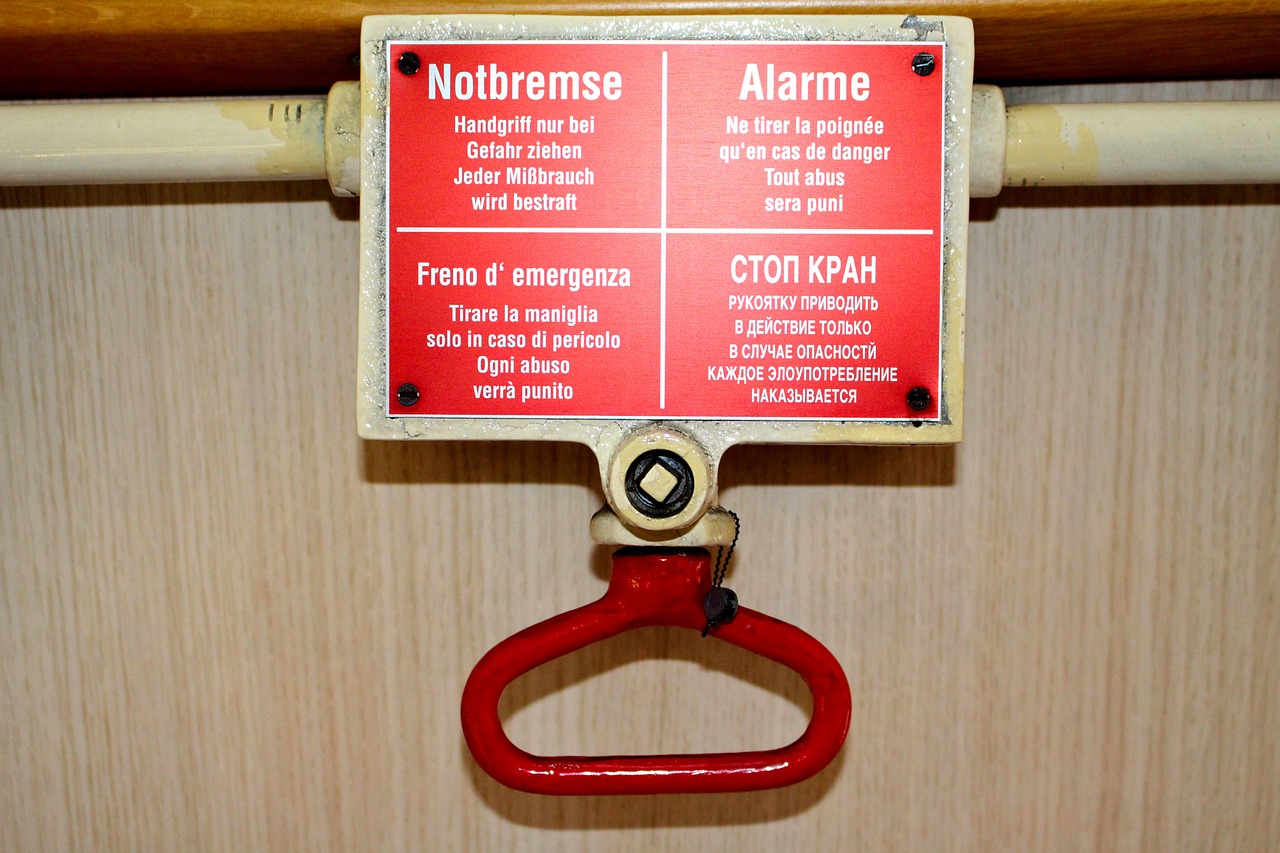
Emergency Contacts and Resources
When you’re traveling, it’s easy to get caught up in the excitement of new experiences, but being prepared for emergencies can make all the difference. Imagine being in a foreign country, and suddenly you find yourself in a situation where you need immediate assistance. Having a well-organized list of emergency contacts and resources can be a lifesaver. First and foremost, it’s crucial to know the local emergency numbers. For instance, in many countries, dialing 112 will connect you to emergency services, but this can vary. Always do your research before you go!
In addition to knowing the emergency numbers, consider compiling a list of important contacts that you can access easily. This should include:
- Your country's embassy or consulate
- Local hospitals and clinics
- Travel insurance provider
- Local authorities, such as police or fire departments
It’s also wise to keep a digital copy of essential documents, such as your passport and travel insurance policy, stored securely in the cloud. This way, if your belongings are lost or stolen, you can quickly access the information you need to report the incident and start the recovery process.
Here’s a quick table summarizing the types of contacts you should have:
| Type of Contact | Details |
|---|---|
| Embassy/Consulate | Address, phone number, and hours of operation |
| Local Hospital | Name, address, and emergency contact number |
| Travel Insurance Provider | Policy number and emergency contact number |
| Local Authorities | Emergency services number and nearest police station |
Moreover, it’s vital to have a plan for how to communicate if you find yourself in a situation where your phone is dead or lost. Consider carrying a portable charger, and if you’re traveling in a remote area, having a local SIM card can be invaluable. Or even better, download offline maps and essential apps prior to your trip to ensure you’re never completely disconnected.
Lastly, don't underestimate the power of community. Connecting with fellow travelers can provide you with additional resources and support. Online platforms and travel forums can be great places to ask for advice or find local contacts who can help in times of need. Remember, being prepared is not just about having contacts; it’s about having the right mindset to handle unexpected situations with grace and confidence.
Q: What should I do if I lose my passport while traveling?
A: Immediately contact your embassy or consulate for guidance on how to report your lost passport and obtain a replacement. It’s helpful to have your passport number recorded somewhere safe.
Q: How can I ensure I have access to funds in case of an emergency?
A: Consider carrying a mix of cash and cards, and inform your bank of your travel plans to avoid any issues with your cards abroad. Additionally, keep a backup credit card in a separate location.
Q: What is the best way to keep my emergency contacts accessible?
A: Store them in your phone, but also write them down and keep them in your wallet or travel document organizer. Having a physical copy can be very useful if your phone is lost or damaged.
Frequently Asked Questions
- What should I do if my flight gets canceled?
If your flight is canceled, the first step is to stay calm. Check your airline's app or website for updates. You can also contact their customer service directly for rebooking options. Remember, having travel insurance can help cover additional costs.
- How can I prepare for unexpected travel disruptions?
Preparation is key! Make sure to pack essential items in your carry-on, keep important documents organized, and have a backup plan for accommodations. Consider downloading travel apps that can help you stay informed about your itinerary.
- What are some effective ways to stay calm during travel disruptions?
Staying calm is crucial. Try deep breathing exercises or positive affirmations to manage stress. Visualizing a positive outcome can also help. Remember, every traveler faces challenges; you're not alone in this!
- How can I communicate effectively with airlines or hotels?
Be clear and concise when explaining your situation. Use a polite tone and be patient; staff are often dealing with multiple issues. Having your booking details handy can speed up the process significantly.
- What technology can assist me during unexpected travel situations?
There are numerous apps available! Use flight tracking apps to stay updated on your flight status, accommodation apps to find last-minute lodging, and communication apps to keep in touch with loved ones or fellow travelers.
- How can fellow travelers help me during disruptions?
Connecting with fellow travelers can provide emotional support and practical tips. They may share their experiences or even help you find solutions. Don’t hesitate to strike up a conversation; you might make a new friend!
- Is travel insurance really necessary?
Absolutely! Travel insurance acts as a safety net, covering unexpected events like trip cancellations, medical emergencies, or lost luggage. Always read the policy details to ensure it meets your needs before purchasing.
- What should I include in my emergency contacts list?
Your emergency contacts list should include local embassy or consulate information, emergency services numbers, and contacts for friends or family back home. Having this information easily accessible can be a lifesaver in stressful situations.
- How can I learn from travel disruptions for future trips?
After experiencing a disruption, take some time to reflect on what happened and how you handled it. Consider what you could do differently next time. This reflection can help you become a more resilient traveler.









